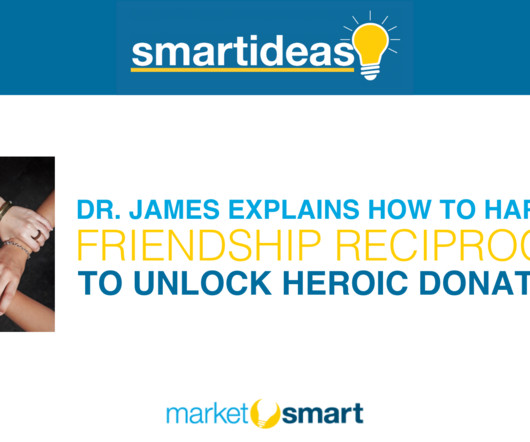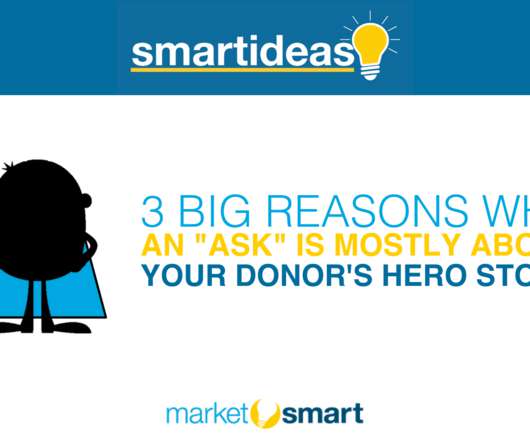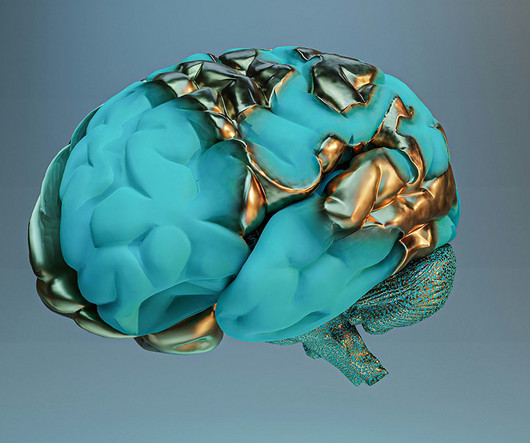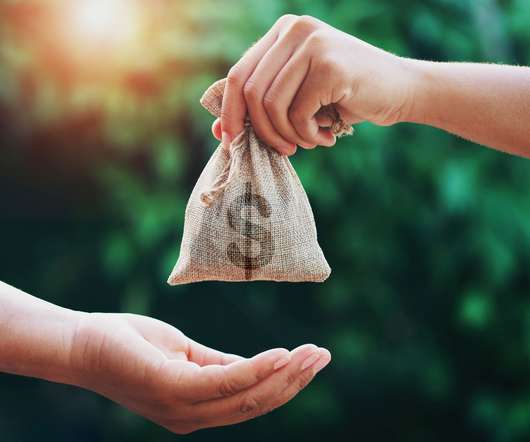Dr. James explains how to harness friendship reciprocity to unlock heroic donations
iMarketSmart
JUNE 19, 2023
Only friendship reciprocity can help. It helps separate true friends from fair-weather friends. A simple answer Signals of helpful, social-emotional relationships encourage generosity. This helps to advance the donor’s hero story. They reserved the highest attractiveness ratings for men showing heroic altruism.













Let's personalize your content